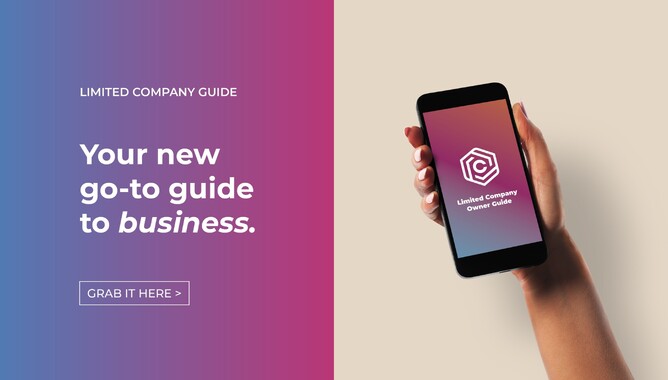Recently set up a new limited company? We've got your back. Knowing all the ins and outs of running a great business can be hard, especially when there's so much to get your head around. Starting a business is a really exciting step in your journey, but it also comes with a lot of new roles and responsibilities. Here we're running through the basics of how to pay yourself from your limited company to help you get up and running.
Paying yourself
Now that you’re a company owner, any payments you receive belong to the business and not to you. This is because your business is a separate entity to you. If you’ve just transitioned from being a sole trader, this can be a bit confusing, but it’s important to bear in mind, as the money generated by the business is no longer yours to take as you please.
So when you pay yourself, this has to be done either through dividends if you’re the owner, or a salary if you’re the employee.
As both an owner (shareholder) and employee (director) of the company, you can pay yourself through a combination of salary and dividends.
Salary
Just like any other employee in the business, as a company director, you can draw a regular monthly salary. When you pay yourself a salary, it's counted as an allowable business expense, which means it lowers the amount of Corporation Tax you pay as a business.Generally, a salary should always be taken but kept to a low level. A minimal salary – above £512 per month (£6,136 per year) – is important to retain access to state benefits such as State Pension. A salary of £719 per month (£8,632 per year) is usually the norm because there will be no national insurance contributions payable.
There are lots of exceptions to the norm and because every business is different, it can sometimes make sense to take a higher salary, so we'd always recommend discussing this with your accountant first to find the most tax-efficient way of paying yourself.
Dividends
After salary, dividends are the most common method for taking the remaining amount of desired cash from the company. Dividends are payments made to company shareholders from the profits of the company, so a company can only pay a dividend if it has made a profit.
If your company has made a profit, it's up to you how much you choose to take as dividends, and if you decide to reinvest that money back into the company, but it's always a good idea to leave some money in the business to help with tax planning and to avoid any cash flow issues.
The first £2,000 of dividends are tax-free, so where possible, this amount should be taken as a dividend annually.
Above this level, up to £50,000 of total income, the tax rate on dividends is relatively low at 7.5%, but above £50,000 the methods of taking value become much more important as the tax rate rockets up to 32.5%.
Dividends can be a more tax-efficient way of taking money out of your company than paying yourself a salary alone, as dividends have lower tax rates, and unlike a salary, there's no National Insurance liability to pay on them.
What's the best way of paying myself?
Every business is totally different, so it can totally depend on what works best for you, but many businesses find that using a combination of salary and dividends is the most tax-efficient way of working. Since personal circumstances are different for every business owner, we'd always recommend talking with an accountant to find the most tax-efficient way of paying yourself. A good accountant will take the time to find out about you and your business and then help you decide which route is right for you.
What next?
We know how important it is to run a successful and profitable business. That's why we've created a Limited Company Owner Guide packed with everything you need to know to get your feet off the ground. Your role as director, what expenses you can claim, what you need to file and when– you name it, we know it. And the best part? It's totally free and always will be. Just a little gift from us to you!



